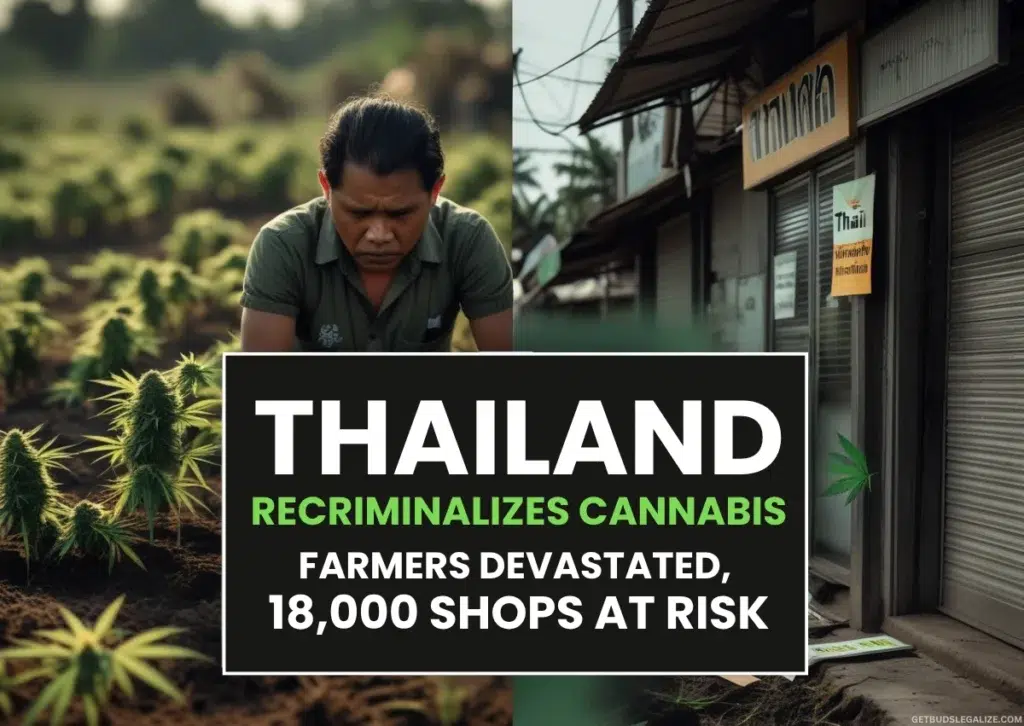2024 Thailand's Cannabis Law Reforms: A Look Into the Future of the Industry
In 2021, Thailand made significant progress in its cannabis regulation approach, becoming the first country among its Southeast Asian counterparts to decriminalize the use and possession of marijuana. This bold step has resulted in an increase in marijuana-related businesses throughout the nation and has pushed Thailand into new economic frontiers.
Thailand Is Currently Working Towards Reforming Regulations Surrounding Cannabis
The cannabis industry has grown significantly without proper oversight and regulation, which has raised concerns about public health. Critics argue that there are potential risks associated with the increase in recreational cannabis use.
To address these concerns, the Thai government aims to strictly confine cannabis use to medical and research purposes, reducing the risks associated with recreational use. To achieve this goal, the government has proposed the Cannabis-Hemp Act.
Subject to public review, this legislation seeks to enhance regulations and controls over the cannabis and hemp industry. The government intends to ensure that these industries meet defined standards and that their growth does not compromise public health. The law is expected to be implemented from 2024 onwards.
The proposed regulations have some key aspects, which are as follows:
1. Stricter controls on personal cultivation: According to the new regulations, individuals will have to obtain permission before growing cannabis, even for personal medicinal purposes. This aims to close any loopholes that commercial growers might exploit.
2. Regulations for cannabis shops: The government is planning to prohibit the sale of cannabis buds for smoking and any equipment for smoking inside the shops. However, existing cannabis shops with proper licenses can continue their operations, but they must comply with these new rules.
3. Fines and penalties: The draft bill proposes fines of up to 60,000 baht (around $1,700) for recreational cannabis use. Furthermore, there are penalties for advertising or marketing cannabis for recreational use.
4. Licensing and regulation: The government will tighten the licensing rules for cannabis planting, sales, exports, and imports. According to the new regulations, growers will have to apply for a license, and existing dispensaries must renew their permits following the new rules.

There Is An Ongoing Discussion Regarding the Upcoming Changes to Cannabis Laws in Thailand
The Thaiger recently reported on a gathering at Siam Green, hosted by Kitty Chopaka, where industry leaders discussed the upcoming changes to Thai Cannabis Laws. Some of the attendees shared their thoughts on the matter.
At present, it is uncertain what will happen to unregulated weed shops, dispensaries, and individuals who have grown cannabis on a small scale. The public and industry stakeholders have until January 23 to provide feedback on the proposed bill. Following this, the cabinet will review the draft legislation and public suggestions before it is presented to parliament for further discussion.
These changes indicate the Thai government’s intention to impose stricter control over the cannabis industry, limiting its use to medical and research purposes, and moving away from recreational use. However, the bill’s final outcome will rely on the parliamentary process and public feedback.
The proposed changes to the Thai Cannabis Laws have brought uncertainty about how unregulated entities will be impacted. It is still unclear what their future will be under the updated laws and how their operations will be affected. These are questions that remain unanswered. As mentioned before, the bill’s final outcome will depend on the parliamentary process and public opinion.
We rely on our partners to provide you with the best products and services. By purchasing from them, you support our website and get high-quality products. Thank you for being part of our community!



















